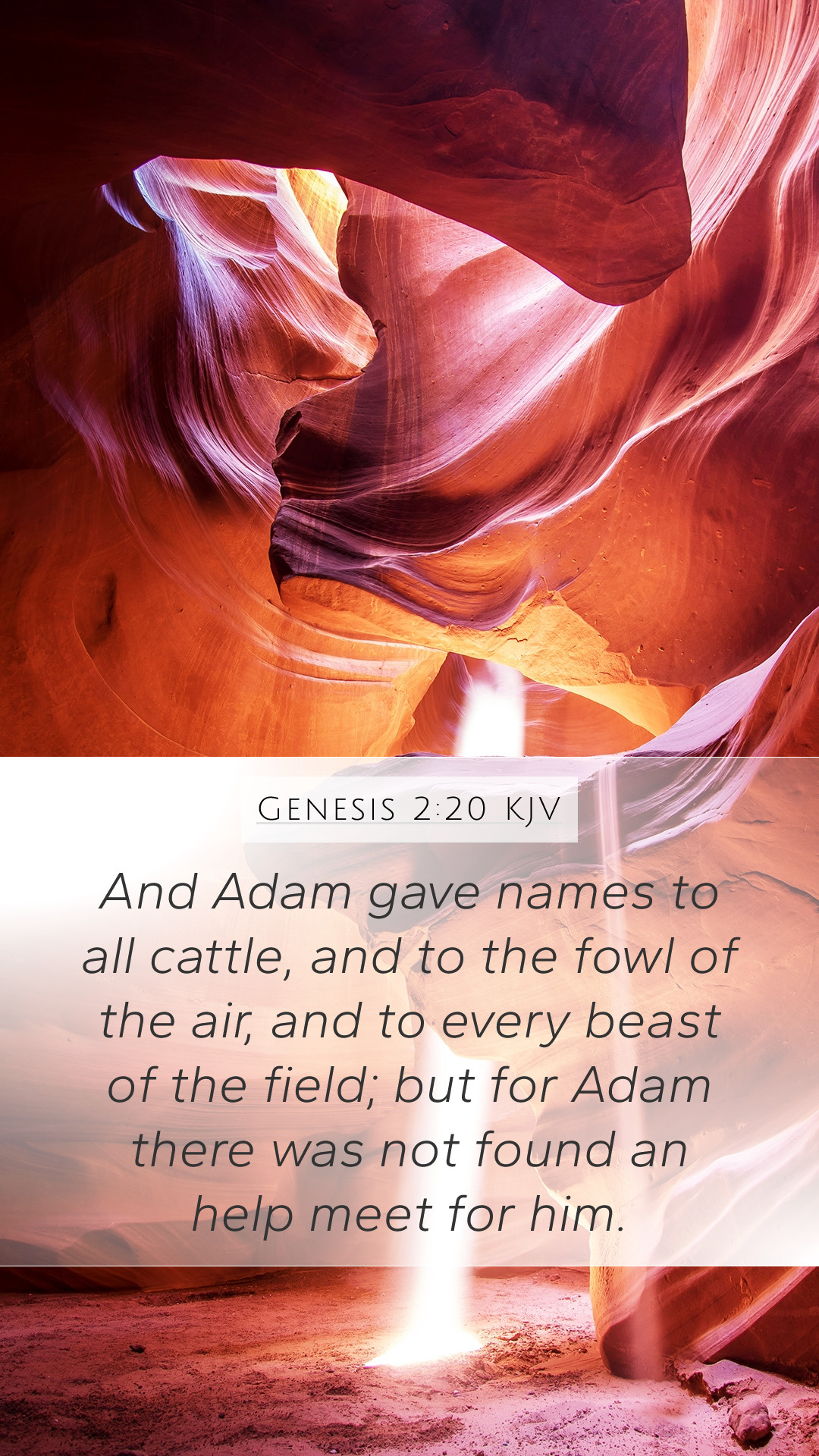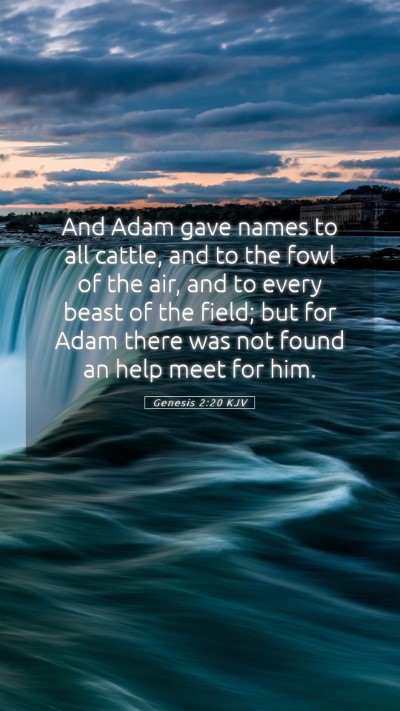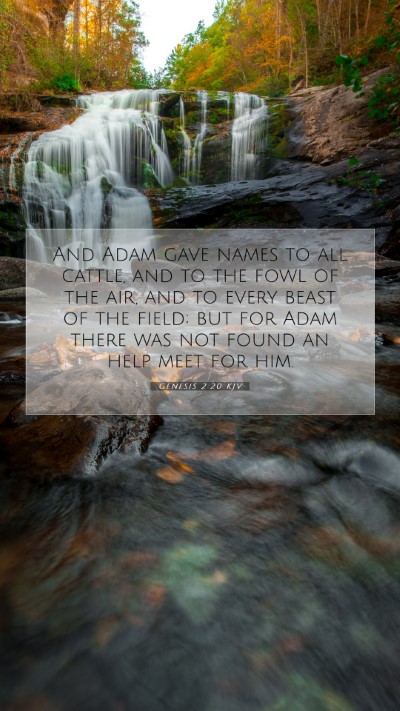Understanding Genesis 2:20: A Comprehensive Bible Verse Commentary
The verse Genesis 2:20 reads: "And Adam gave names to all cattle, and to the fowl of the air, and to every beast of the field; but for Adam there was not found a help meet for him." This passage is rich in meaning and significance, providing valuable insights into human identity, purpose, and the divine order of creation.
Verse Context and Setting
In this portion of Scripture, we encounter Adam, the first man, who has been placed in the Garden of Eden. He is tasked with naming the creatures of the earth, an act that demonstrates his authority and responsibility. This verse is pivotal as it illustrates the partnership between humanity and creation and lays the groundwork for understanding the need for companionship.
Bible Verse Meanings Explored
-
Divine Commission: Adam’s naming of the animals symbolizes humanity's God-given role to steward creation. According to Matthew Henry, this act underscores the idea that God grants authority and responsibility to humanity. He emphasizes the significance of Adam's role and how it reflects God's creative power.
-
Human Isolation: The latter part of the verse highlights that, despite Adam’s dominion over the creatures, there was "not found a help meet for him." Albert Barnes notes that this signifies a profound truth about human existence—we are created not just to rule but to be in relationship. This aspect of the verse poignantly depicts Adam's solitude in a world of creatures.
-
The Search for Companionship: Adam Clarke points out that this search for a companion reflects humanity's intrinsic need for fellowship. It prepares us for the introduction of Eve, showcasing the importance of companionship in fulfilling God's purpose for mankind.
Theological Insights
Genesis 2:20 offers profound theological insights regarding the nature of God and humanity. It portrays a relational God who desires that humans not remain isolated but seek companionship, resonating with the broader biblical narrative of relationship and community.
Significance in Bible Study
For those engaging in Bible study groups or online Bible study, this verse serves as an excellent discussion point regarding the principles of relationship, stewardship, and the roles assigned to humanity. The parallels with contemporary life—a world often marked by isolation—make this study relevant.
Application of the Verse in Daily Life
- Recognizing the need for companionship and community.
- Reflecting on our roles as stewards of creation.
- Understanding our identities in Christ and our relationships with others.
Cross References
- Genesis 1:26-28: The divine mandate to rule over creation.
- Ecclesiastes 4:9-10: The importance of companionship and support.
- Genesis 2:18: God’s declaration that it is not good for man to be alone.
Conclusion
In Genesis 2:20, we find a rich tapestry of meaning that speaks to both the divine order of creation and the essential human experience of companionship. As we engage in in-depth Bible verse analysis and seek to delve into Scripture analysis, we unearth valuable lessons that are applicable to our lives today. The verse invites us to reflect on our relationships, our responsibilities, and ultimately, our connection to the Creator.


